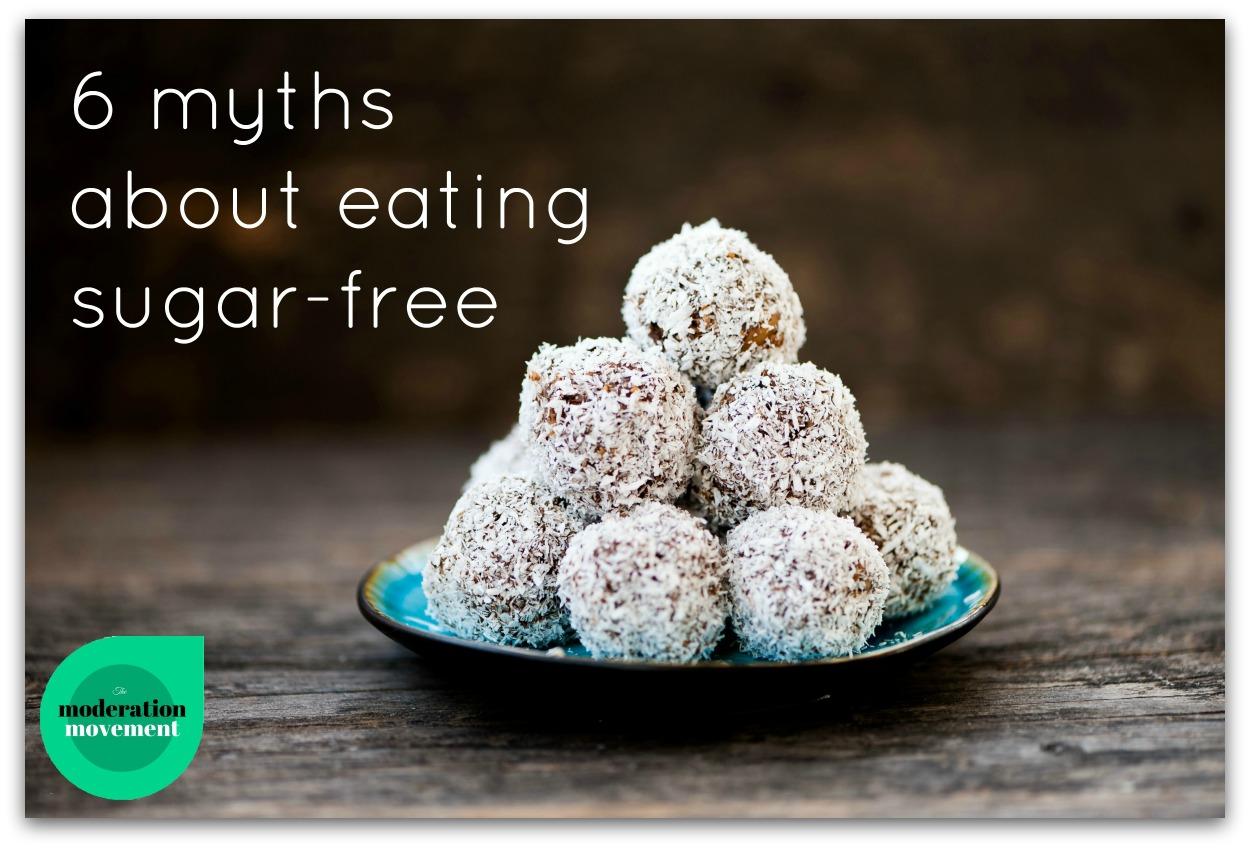6 myths about eating sugar-free

Six myths about eating sugar-free… which really means fructose-free, but I’m going to keep using the term “sugar-free” because this is the language most people use.
It’s no wonder people are confused about sugar, the amount of misinformation on the internet is staggering.
Now, as I have always been clear, if you are completely cool with avoiding regular sugar (sucrose), then fine… I am not here to tell you you should eat regular sugar. I am writing this for those people who would still like to use regular sugar in their diet.
And no, I am not being paid by BIG sugar or encouraging people to eat more sugar. Too much sugar, like too much of anything, has its problems.
So let’s unpack some of these myths…
1. If it doesn’t contain fructose, it’s sugar-free. Sorry people but rice-malt syrup is still sugar.
While this should seem perfectly obvious, most of the “sugar-free” recipes I see contain rice malt syrup.
2. Just because it’s sugar-free doesn’t make it better for you.
A protein ball sweetened with rice malt syrup is not more nutritious than a protein ball made with regular sugar. They both contain protein, sugar, fat and a range of vitamins and minerals.
Eating a variety of core food group foods will give your body the nutrients and energy it needs. The type of sugar you use in addition to these core food group foods will not change this.
3. Sugar (glucose and fructose) is neither healthy nor unhealthy, it’s just sugar, a substance that makes food taste sweet. The same can be said for all other forms of sugar, even those that are fructose-free.
4. Eating sugar-free doesn’t mean you’re healthier than someone who eats sugar.
Read the second point under point 2 again.
You can include regular sugar in your diet and live a long healthy life (you might not, but you might). Likewise, eating sugar-free does not guarantee you’ll be free from disease or ill-health.
5. Eating sugar-free does not help you lose weight and keep it off long term.
To this day, there are no studies that show long-term weight loss through dietary change being maintained beyond about 1.5-2 years.
You may well lose weight initially eating sugar-free but you can also do this eating regular sugar, it’s the maintaining the weight loss beyond 5 years that’s the tough part. There will be people who have quit sugar and have managed to do this, but there are also people who have done so without quitting sugar. Either way, these people are the tiny minority and their (or your) individual experience is not sufficient evidence to say eating sugar-free leads to long-term weight loss.
6. You shouldn’t eat food that doesn’t fit into one of the core food groups.
I read on an IQS post that “fructose wasn’t recognised as a food group, so out it goes”.
Based on that logic we shouldn’t eat a vast array of chemical compounds that aren’t considered food groups, such as vitamins, minerals, anti-oxidants, glucose and oh gosh, that would also include water!!
Please share to help clear up the confusion around sugar.
